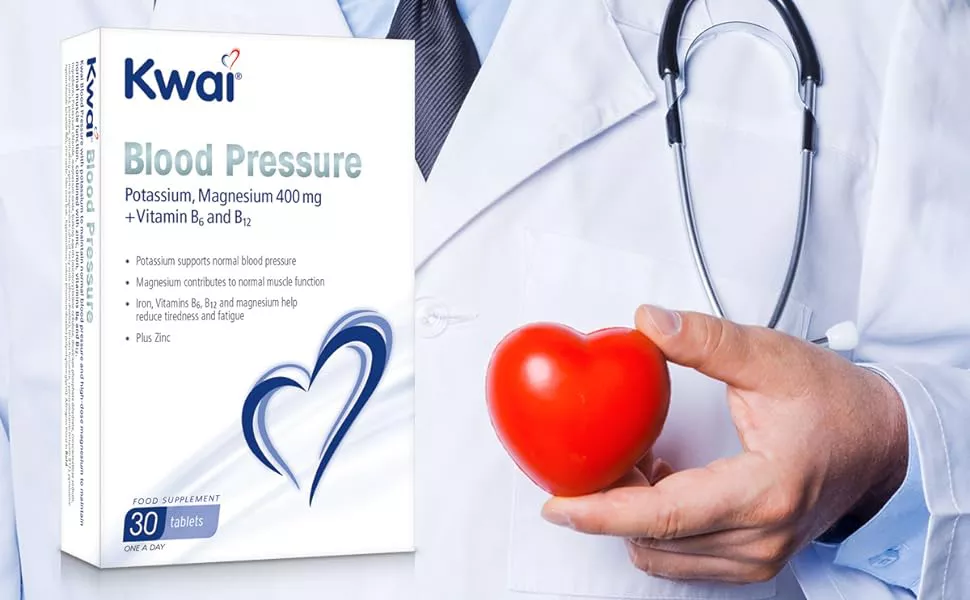Blood pressure (BP) management is a cornerstone in the treatment and prevention of cardiovascular diseases, including heart attacks, strokes, and kidney damage. Proper timing of blood pressure medication can enhance its efficacy and reduce the risk of adverse events. This article explores the best practices for taking blood pressure tablets, emphasizing the importance of adherence, factors influencing timing, and practical tips for patients.
The Basics of Blood Pressure Medication
Blood pressure medications, also known as antihypertensives, come in various classes, including diuretics, beta-blockers, ACE inhibitors, angiotensin II receptor blockers (ARBs), calcium channel blockers, and others. Each class works differently to lower blood pressure:
Diuretics: Help the kidneys eliminate sodium and water, reducing blood volume.
Beta-blockers: Decrease heart rate and the force of contraction, reducing blood pressure.
ACE inhibitors: Block the formation of a hormone that narrows blood vessels.
ARBs: Prevent blood vessels from narrowing by blocking angiotensin II.
Calcium channel blockers: Relax and widen blood vessels by preventing calcium from entering heart and blood vessel muscle cells.
SEE ALSO: If You Have High Cholesterol, What Should You Avoid?
Why Timing Matters
The effectiveness of blood pressure medication can be influenced by the timing of the dose. Blood pressure follows a circadian rhythm, typically peaking in the morning and evening and dipping during the night. This natural fluctuation means that the timing of medication can be tailored to counteract these peaks and troughs.
When Should You Take Your Blood Pressure Tablets?
Morning vs. Evening Dosing
Morning Dosing: Traditionally, blood pressure medications are taken in the morning to combat the morning surge, a period when blood pressure rises sharply upon waking. This approach aims to reduce the risk of cardiovascular events that are more likely to occur in the early hours.
Evening Dosing: Recent studies suggest that taking blood pressure medication at night may offer additional benefits.
Nighttime dosing can better control nocturnal blood pressure, which is crucial as non-dipping blood pressure (failure to decrease at night) is associated with higher cardiovascular risks.
Factors Influencing the Timing of Blood Pressure Medication
Several factors should be considered when deciding the best time to take blood pressure medication:
Type of Medication: Some medications, like diuretics, are better taken in the morning to avoid nighttime urination. Others, like beta-blockers and ACE inhibitors, may be more effective when taken at night.
Patient’s Routine: The timing should fit into the patient’s daily schedule to enhance adherence. Consistency is key in managing hypertension.
Blood Pressure Patterns: Monitoring blood pressure at different times can help identify the best time for medication. Patients who exhibit a non-dipping pattern may benefit more from nighttime dosing.
Side Effects: Some medications may cause side effects like dizziness or fatigue. Adjusting the timing can help manage these side effects better.
Morning Dosing: Pros And Cons
Pros of Morning Dosing
Counteracts Morning Surge: Taking medication in the morning can help manage the morning surge in blood pressure, reducing the risk of heart attacks and strokes.
Routine Integration: Morning dosing fits well into daily routines, making it easier for patients to remember.
Monitoring: Blood pressure monitoring typically occurs during the day, aligning well with morning dosing.
Cons of Morning Dosing
Duration of Effectiveness: Some medications may not provide 24-hour coverage, leading to elevated blood pressure in the evening or night.
Side Effects: Diuretics taken in the morning may cause frequent urination, which can be inconvenient for some patients.
Evening Dosing: Pros And Cons
Pros of Evening Dosing
Improved Nocturnal Control: Taking medication at night can help control nocturnal blood pressure, reducing the risk associated with non-dipping patterns.
Long-Lasting Effect: Certain medications may provide better 24-hour coverage when taken at night.
Reduced Morning Surge: Evening dosing can also help mitigate the morning surge by maintaining stable blood pressure levels through the early hours.
Cons of Evening Dosing
Adherence Challenges: Patients may find it harder to remember to take medication at night, especially if it disrupts their routine.
Side Effects at Night: Some medications may cause nocturnal side effects, such as vivid dreams or nocturia (nighttime urination).
Guidelines and Recommendations
The American Heart Association (AHA) and other health organizations do not universally endorse a single best time for taking blood pressure medication. However, they emphasize individualized treatment plans based on patient needs and blood pressure patterns.
General Recommendations
Adherence is Key: The most important factor is adherence. Patients should take their medication consistently at the same time every day.
Monitor and Adjust: Regular blood pressure monitoring can help identify the most effective dosing time. Patients should work with their healthcare provider to adjust timing if necessary.
Consider Combination Therapy: For some patients, a combination of medications taken at different times may offer better control.
Practical Tips for Patients
Establish a Routine: Link medication time to a regular daily activity, such as brushing teeth or eating breakfast, to help remember the dose.
Use Reminders: Alarms, phone reminders, or pill organizers can aid in consistent medication adherence.
Monitor Blood Pressure: Keep a log of blood pressure readings at different times of the day and discuss with your healthcare provider to optimize medication timing.
Communicate with Healthcare Providers: Regularly review your medication regimen with your doctor, especially if you experience side effects or changes in your routine.
Conclusion
The timing of blood pressure medication is a critical aspect of hypertension management. Both morning and evening dosing have their advantages and potential drawbacks. The best approach is individualized, taking into account the type of medication, patient lifestyle, blood pressure patterns, and potential side effects. Consistent adherence to the prescribed regimen, regular monitoring, and open communication with healthcare providers are essential to achieving optimal blood pressure control and reducing cardiovascular risk.

